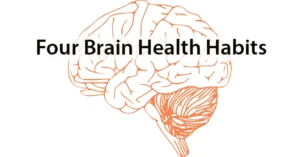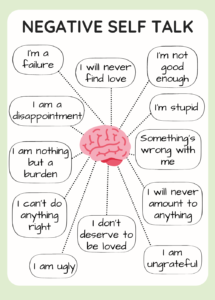The human body operates on a finely tuned internal clock...
Brain Rewiring to Master Mind Control
The human brain, with its billions of neurons interconnected in intricate networks, holds the key to unlocking the mysteries of consciousness, cognition and self-regulation. Recent advances in neuroscience have revealed the remarkable capacity of the brain to rewire itself through neuroplasticity, offering unprecedented opportunities for individuals to cultivate mental resilience, emotional regulation and cognitive mastery. Delving into the physiological, neuropsychiatric and scientific dimensions of brain rewiring unveils a transformative journey toward harnessing the power of the mind to shape our destinies.
The Neurobiology of Neuroplasticity:
Neuroplasticity, the brain’s innate ability to reorganize and adapt in response to experiences, underpins the dynamic nature of human cognition and behavior. At the cellular level, synaptic plasticity – the strengthening or weakening of synaptic connections – mediates learning, memory formation and skill acquisition.
Neurotrophic factors, such as brain-derived neurotrophic factor (BDNF), play a crucial role in promoting neuronal growth, synaptic plasticity and neurogenesis, facilitating the rewiring of neural circuits underlying cognitive functions and emotional responses.
The Science of Mind Control:
Mind control, often misconceived as a mystical phenomenon, is rooted in the principles of neuroplasticity and self-directed neuroregulation. By leveraging techniques such as mindfulness meditation, cognitive-behavioral therapy (CBT), and neurofeedback training, individual can modulate neural activity, enhance attentional focus, and regulate emotional states. Functional neuroimaging studies have elucidated the neural correlates of mind control, revealing the involvement of prefrontal cortical regions in cognitive control. Emotional regulation, and self-awareness.
Rewiring the Brain for Mastery:
Mastering mind controls entails deliberate practice, cognitive training, and lifestyle modifications aimed at sculpting neural circuits and optimizing brain function. Mindfulness meditation, characterized by non-judgmental awareness of present-moment experiences, fosters neuroplasticity in regions implicated in attention, emotion regulation and introspective awareness.
Cognitive behavioral interventions target maladaptive thought patterns and behaviors, promoting adaptive coping strategies and resilience against stressors. Neurofeedback training harnesses real-time feedback of brain activity to modulate neural oscillations and optimize cognitive performance, offering personalized approaches to brain rewiring and self-regulation.
Neuropsychiatric Applications:
In neuropsychiatric contexts, harnessing brain rewiring holds promise for treating a myriad of mental health conditions, including anxiety disorders, depression and attention-deficit/hyperactivity disorder (ADHD). Mindfulness-based interventions have demonstrated efficacy in reducing symptoms of anxiety and depression, enhancing emotion regulation, and promoting psychological well-being. Cognitive restructuring techniques in CBT empower individuals to challenge negative thought patterns and cultivate adaptive coping skills, fostering resilience against relapse and recurrence of psychiatric symptoms.
Conclusion:
Unlocking the potential of brain rewiring offers a pathway to mastering mind control and cultivating mental resilience in the face of life’s challenges. By embracing the principles of neuroplasticity, individuals can harness the power of their minds reshape neural circuits, enhance cognitive function, and cultivate emotional well-being. As we continue to unravel the mysteries of brain rewiring and self-regulation, the pursuit of mastery over the mind stands as a testament to the transformative capacity of human consciousness in shaping our lives and fulfilling our potential.






